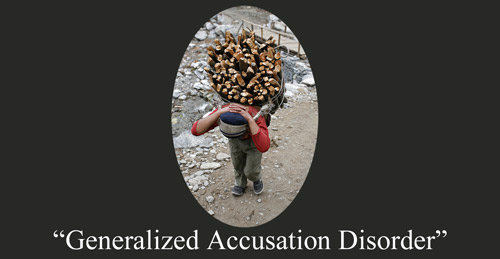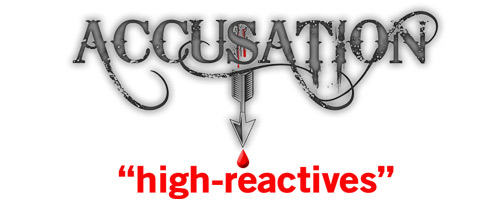How we accuse our hearts of all kinds of things...
 Monday, August 5, 2013 at 3:08PM
Monday, August 5, 2013 at 3:08PM Too often, when we talk about "the heart," we tend to view the heart as our entire internal world; that is, anything and everything that's going on inside of us - whether good, bad or ugly. This catch-all, kitchen sink view of the heart has led us in some really unhelpful directions.
Notice how we often frame what's going on inside of us:
- "I had to really examine the motives of my heart."
- "My stubbornness means that I have a 'divided heart.'"
- "You haven't given your whole heart to God."
In each of these instances, the accusation is clear: Your heart will mislead you. It is not to be trusted.
This simply isn't true. Your new and noble heart isn't capable of deceiving you or leading you astray. Let's look at each claim:
1. "I had to really examine the motives of my heart."
Yes, you may have poor motives in this or that situation, but those corrupt motives are not originating from your new heart: They emanate from your flesh - the old programming left over by your old self, or the "old man." That old self is no longer here; but it's imprint was left behind. That is where your faulty motives lie.
Another source of bad motives comes from the virus that lives in your body: sin. Notice that I didn't say your "sin nature." Why? Because you no longer have a sin-nature. After your sin-nature was removed at conversion, there remained a sin virus that can leave collateral damage in its wake, but it cannot become you; and it isn't you; just as you might have the flu, but are not the virus itself.
A third source of bad motives comes from the Enemy of our hearts. The foul beings will quietly come up beside you and whisper in your ear all manner of wicked things, and pin those thoughts on you!
2. "My stubbornness means that I have a 'divided heart.'"
No. You don't have a divided heart. Your new spirit [heart/will] may be in conflict with your flesh, but your heart [true nature] itself is united with Christ and inseparable from his nature. There is no separation between your heart and his: One cannot be distinguished from the other. As Luther declared, “You are so entirely joined unto Christ, that He and you are made as it were one person; so that you may boldly say, ‘I am one with Christ,’ that is to say, Christ’s righteousness, victory, and life are mine.” Because his heart cannot be divided, yours cannot be divided.
3. "You haven't given your whole heart to God."
False. It was never about giving your heart to God. [Surprised?] Jesus wasn't asking you to offer him your old heart: He was asking you to receive! The heart you used to have wouldn't have done you or Him much good. It was beyond repair and needed to be replaced. Not fixed; but replaced. "Getting saved" wasn't about offering a ruined and wayward heart to God, hoping that he'd fix it one day: Rather, it was about receiving a new-hearted nature from God. It has always been first about receiving. He doesn't require anything from you that he hasn't already deposited within you. [1]
Try this: For three days, write down some of your own internal dialogue about your heart and its motives. What are you accusing your heart of? What's the real source of those undesirable thoughts or motives? Then apologize to your heart: There's no shame in this: After all, its no longer in your heart to accuse your heart anyway.
[1] Dwight Edwards, Revolution Within
 Jim Robbins
Jim Robbins
Here's another often-heard statement that denies our new-hearted identity: "God had to soften my heart so that ______________."
While God may need to bring about change, He is not interested in fixing your heart: Rather, your heart is your ally now, not your enemy. Your wandering heart was replaced during Jesus' crucifixion and resurrection with a pure and noble heart.
Your flesh, even 'sin in the flesh,' might trip you up; but your heart [your new and radiant nature] doesn't need fixing or cleansing.



























